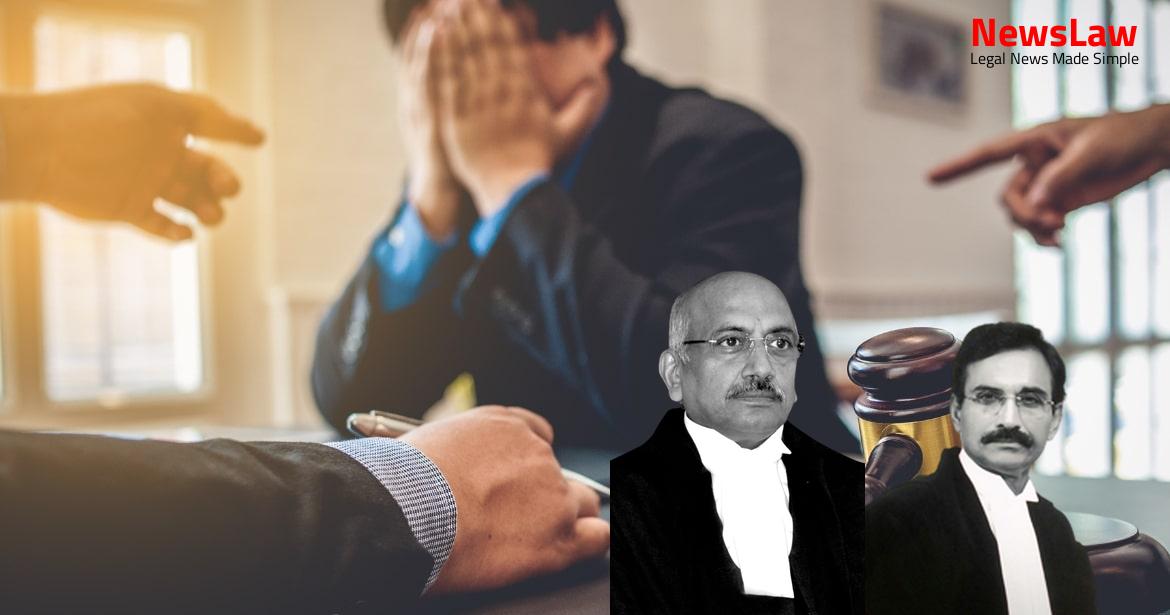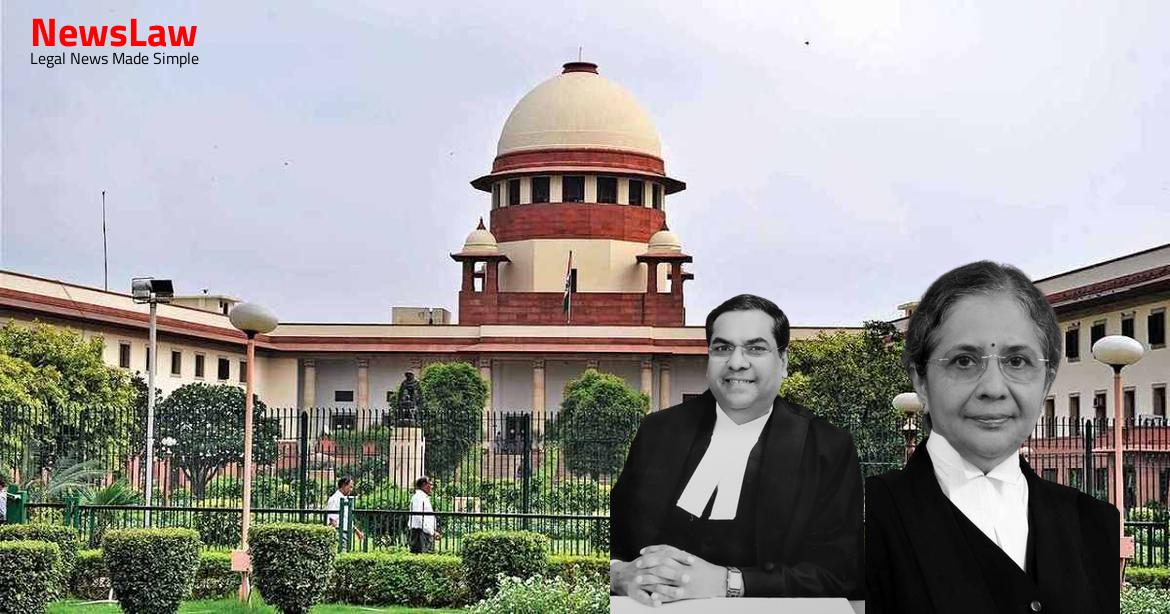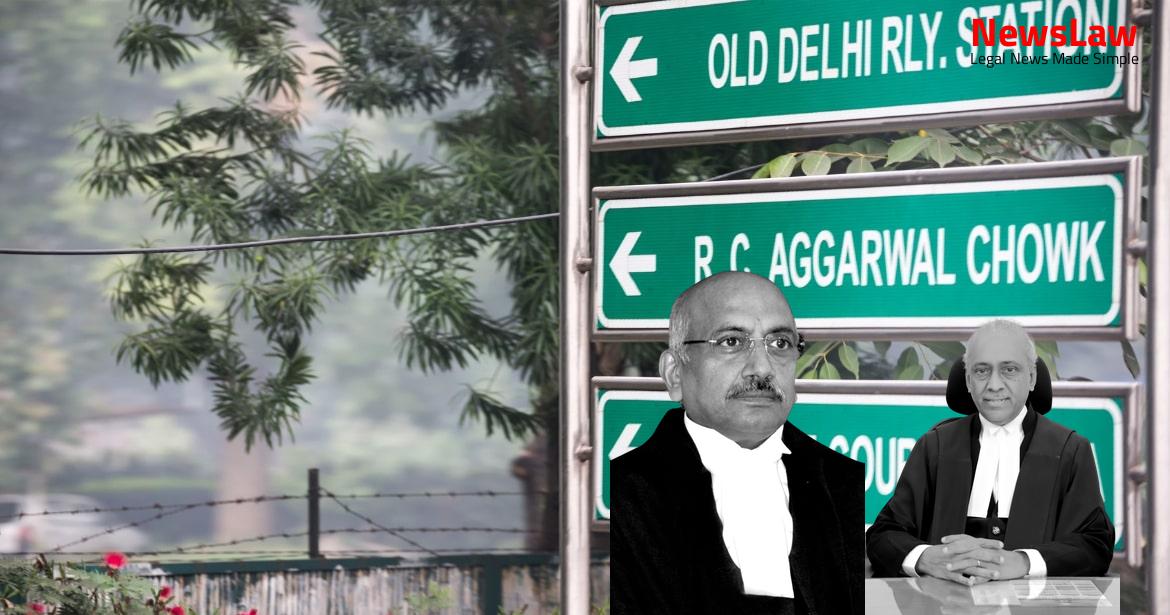The recent court judgment in a legal case highlights an important aspect of debt precedence – the priority of secured debt over Crown debt. The court’s in-depth legal analysis delves into the interpretation of rules pertaining to property transfers under attachment orders. This case serves as a significant precedent for similar disputes involving the hierarchy of debts in legal proceedings.
Facts
- The DRT allowed the OA filed by Respondent No.5, directing BPIL to pay Rs.4,76,14,943.20/- with interest.
- Respondent No.2 issued a proclamation of sale on 19.08.2004, with a public auction on 28.09.2004.
- The property was attached on 29.11.2002 following Rule 48 of Schedule II.
- Appellant made an offer of Rs.23,00,000/-, which was accepted by Respondent No.2.
- MIDC received an attachment letter from Respondent No.4 on 17.06.2003 regarding the property.
- Appellant requested MIDC to transfer the property based on the Sale Certificate issued by DRT on 25.01.2005.
- Writ Petition filed in High Court seeking ‘No Objection’ for property transfer and to restrain Respondent No.4 from enforcing the attachment.
- High Court dismissed the Writ Petition, leading to the appeal being filed by the Appellant.
- The High Court held that the notice under Rule 2 of Schedule II to the Act was issued on 11.02.2003 and the property in dispute was attached under Rule 48 on 17.06.2003.
- The sale in favor of the Appellant took place on 09.12.2004, subsequent to the notice and attachment, making the transfer of the property void.
- The argument that the sale was at the behest of the DRT and not the defaulter was not accepted by the High Court.
- The High Court dismissed the Writ Petition based on these findings.
- The property was mortgaged by BPIL in 2000 and recovery certificate was issued by DRT in 2002.
- The property was attached prior to the notice by the Income Tax Officer under Rule 2 of Schedule II to the Act.
- After an attachment under Rule 16(2), no transfer can be made contrary to the attachment as per the High Court’s interpretation of Rule 16 of Schedule II to the Act.
Also Read: Judicial Review of Answer Key in Teacher Selection Process
Arguments
- Rule 2 and Rule 16 of Schedule II are not applicable to the case as a charge over the property was created prior to the issuance of the notice under Rule 2.
- Government debt in India does not have precedence over a prior secured debt.
- BPIL was in default of payment of income tax leading to a penalty, and a notice under Rule 2 of Schedule II was issued on 11.02.2003 following prescribed procedure.
- No property subject to a notice can be transferred after issuance of the notice under Rule 2.
Also Read: Assessment of Undisclosed Income: Legal Analysis
Analysis
- Rule 16(1) prevents a defaulter or his representative from dealing with any property subject to a notice under Rule 2.
- No civil court can execute a decree against attached property without permission from the Tax Recovery Officer.
- The Crown debt has priority under Schedule II to the Act, making transfers of attached property void.
- The sale of the property to the Appellant took place after the attachment order in 2003.
- The property was mortgaged in 2000, and a recovery order was passed in 2002 against BPIL.
- Rule 16(2) declares private transfers of attached property as void against all claims enforceable under the attachment.
- When a certificate has been drawn up by the Tax Recovery Officer for the recovery of arrears under this Schedule, a notice requiring the defaulter to pay the specified amount within fifteen days must be served.
- The notice must intimate that steps will be taken to realize the amount if the payment is not made within the stipulated fifteen days.
- Upon service of the notice, the defaulter or his representative in interest cannot mortgage, charge, lease, or deal with any property without permission from the Tax Recovery Officer.
- No civil court can issue any process against the defaulter’s property in execution of a decree for payment of money once a notice has been served.
- It is trite law that, unless there is preference given to the Crown debt by a statute, the dues of a secured creditor have preference over Crown debts.
Also Read: Jurisdiction and Substantial Questions of Law in Land Dispute Case
Decision
- Respondent No.4 is restrained from enforcing the attachment order dated 17.06.2003.
- The High Court did not consider that the property sale was pursuant to an order by the DRT that already had a charge on the property prior to the notice on 11.02.2003.
- The charge on the property existed before the notice under Rule 2 of Schedule II to the Act by Respondent No.4.
- The Appellant’s submissions are deemed valid.
- The High Court’s judgment is overturned, and the Appeal is granted.
- MIDC is instructed to issue a ‘No Objection’ certificate to the Appellant.
Case Title: M/S CONNECTWELL INDUSTRIES PVT.LTD. Vs. UNION OF INDIA THROUGH THE MINISTRY OF FINANCE (2020 INSC 287)
Case Number: C.A. No.-001919-001919 / 2010



